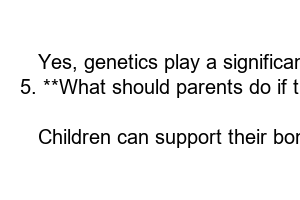성장판 닫히는 시기
As children grow, they experience a variety of physical changes – one of the most important being the closure of their growth plates. Let’s dive into what exactly happens when growth plates close and how this process affects children’s development.
**What are growth plates?**
Growth plates are areas of cartilage at the end of long bones where growth occurs. They are responsible for the lengthening of bones during childhood and adolescence.
**How do growth plates close?**
As a child reaches the end of their growth period, the growth plates begin to close. This process is triggered by hormones that signal the bones to stop growing.
**What happens when growth plates close?**
Once the growth plates close, bones stop growing in length. This usually occurs in late adolescence or early adulthood.
**Impact on height and physical development**
The closure of growth plates marks the end of significant height growth for individuals. After this point, any increase in height is minimal.
**Potential consequences of growth plate closure**
Premature closure of growth plates can result in shortened stature or differences in limb length. It is essential for parents to monitor their children’s growth and consult with a healthcare professional if any concerns arise.
**Maintaining bone health after growth plate closure**
While growth plates may have closed, it is still essential to prioritize bone health through proper nutrition, exercise, and calcium intake to support overall growth and development.
**Summary**
Understanding when growth plates close is crucial for parents and children as it signifies the end of significant height growth. Monitoring growth and maintaining bone health post-closure are essential for overall well-being and development.
**FAQs:**
1. **At what age do growth plates typically close?**
Growth plates generally close in late adolescence, around 14-18 years for girls and 16-20 years for boys.
2. **Can growth plates be damaged?**
Yes, growth plates can be damaged by injuries or repetitive stress, leading to growth disturbances.
3. **Is there any way to reverse growth plate closure?**
Once growth plates have closed, they cannot be reopened or reversed.
4. **Do genetics play a role in growth plate closure?**
Yes, genetics play a significant role in determining the timing of growth plate closure and potential height.
5. **What should parents do if they have concerns about their child’s growth?**
If parents have concerns about their child’s growth or development, they should consult with a pediatrician or orthopedic specialist.
6. **How can children support their bone health post-growth plate closure?**
Children can support their bone health by consuming a balanced diet rich in calcium and vitamin D, participating in weight-bearing exercises, and avoiding smoking and excessive alcohol consumption.

